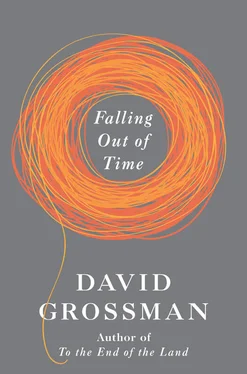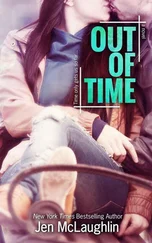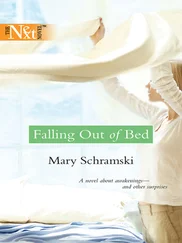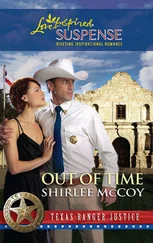He falls silent. Silence descends on the whole town. I dare not move. Thus, with my hand resting on the centaur’s head, I suddenly hear, very close, right in the place where my hand touches the large, sweaty head, the voice of the man who walks the hills.
WALKING MAN:
In the first year
after, alone at home,
I sometimes called your name,
your childhood
nickname.
With strength I did not possess,
in madness, with dauntless
peril to body and soul,
I would imbue that short,
yearned-for
word
with magic dust:
domesticity,
serenity,
routine.
Then utter a calculated, casual:
“Uwi?”
If I said it just right, I hoped
(I dreamed, I schemed),
you could not refrain
from responding
to the simplicity,
which transcends
worlds and borders—
I would say “Uwi” and you would
slide down and come true
in a blink, the echo
of my call,
a minor tide
trickling from the there
into the here. And that would be
your answer,
natural and practical,
as exhalation
answers inhalation,
a tribute
to the miracle of
powerful routine.
Oh, I would say to you,
watch a game with me? Or
shall we take a walk
together now?
How did it happen, my child,
that of all my words,
there is one
that will never,
ever
be answered?
TOWN CHRONICLER: “But where is there ?” asks my wife the next day as we take our evening walk — she down the street, me following her, hidden by the shadows. “Where is this there he’s going to? Who even believes that such a place exists?”
As she ambles, she throws these words into the air. I feel almost weak-kneed from the surprise. I look around to see if anyone has heard her, but fortunately it is only she and I on the street at this hour.
“Maybe there has been here all this time?” she continues, and the matter-of-fact cadence of her voice unsettles me even more: she might as well be conversing casually in our kitchen.
“And maybe we’ve been there, too, just a bit, since it happened to us?” She straightens up and a new momentum seems to drive her steps. “Maybe there has always been here, and we just didn’t know it?”
A cool breeze blows. She wraps a scarf around her neck, leaving her beautiful shoulders bare. She does that for me. Today is my birthday, Your Highness, and she knows how much I love her shoulders.
“And if that is the case”—she takes a deep breath—“then maybe, maybe she is here with us, every single moment?”
The powerful stab of the words makes us both stop.
“Just imagine,” she whispers.
We keep walking. She up front, I in the shadows of houses and through darkened yards, shaken.
ELDERLY MATH TEACHER:
“A father should not outlive his child.”
The clear-eyed logic of this rule
is rooted not only
in human life, but also,
as we know,
in the science of optics, where
(in the spirit of the great Spinoza,
the lens grinder)
we find an extremely daring
axiom: “The object
(‘the life of the son’)
must never be located
in the universe
at a distance
from which the father
(‘the observing subject’)
may encompass all of him
with one gaze
from beginning to end.”
For otherwise
(and here I interject),
the observing subject
would become
at once
a lump
of lignite
(known also as:
coal ).
TOWN CHRONICLER: Now, from day to day, the wayfarer’s walk grows more vigorous. At times it seems, Your Highness, that a nameless power hovers over the town, envelops it, and — like a person sucking an egg through a hole in the shell — it draws these people and others toward it, from kitchens and squares and wharves and beds. (And — if there is truth to the shocking, dizzying rumors, Your Highness — even from palace rooms?)
The woman atop the belfry — once in a while I look up and see her there among the clouds, her silver hair unbraided, flying — she, too, must sometimes cling to the spire with both arms or else be swept up in the invisible storm. Now, for instance, her mouth is agape, and I do not know whether she is shouting out in the silence or eagerly swallowing words as they float past.
WALKING MAN:
Like a fetus hatching
from its mother’s womb and body,
his death made me the father
I had never been—
it bored
a hole in me, a wound,
a space, but also filled me
with his ubiety,
which churns in me now
with an affluence
of being I have never
felt before.
His death
has qualified me
to conceive him.
His death
makes me
an empty slough
of father — and of
mother: it bares
my breast for
no one there to suckle.
And on the walls
of my womb,
which on that day was hewn,
his death — with fleeing captive’s fingernails—
notches off the score of days
without him.
Thus, with lucent chisel,
his death
engraves its news on me:
the bereaved
will always
woman be.
TOWN CHRONICLER: The next night, my wife and I take our daily walk again. Between the houses we catch an occasional glimpse of the small procession ambling over the hilltops on the horizon.
TOWN CHRONICLER’S WIFE: In recent days I think I see, over their heads, in the air, some sort of reddish flicker, a chain of embers hovering above …
TOWN CHRONICLER: As usual, she sets our pace. When she pauses, I stop, too. Sometimes, when she is lost in thought, I must enter a yard and huddle behind a fence, praying I won’t encounter a dog. At this moment she watches the strange embers at length, and I, as always, watch her. The faint moonlight falls on her face. She was so beautiful once. She is now, too.
When we finally arrive at her home, she opens the door. But tonight she lingers at the doorway, turns, and looks straight into the dark, as though guessing exactly where I am hiding. I feel the home current wafting toward me, warm and fragrant. She hugs her body and sighs softly. I may be wrong, but perhaps it is her way of telling me that she would like to fall upon me now, screaming, teeth bared, and beat me furiously with her fists, tear my skin off with her nails.
She slowly shuts the door. Retreats into her home. I look up to the hills.
WALKING MAN:
And he himself,
he is dead,
I know now.
I now can say — though
always in a whisper—“The boy
is dead.”
I understand, almost,
the meaning of the sounds:
the boy is dead. I recognize
these words as holding truth:
he is dead. I know.
Yes, I admit it: he is dead.
But his death — it swells,
abates,
fulminates.
Unquiet,
unquiet
is his death.
So unquiet.
ELDERLY MATH TEACHER: … Based on my observations, I believe, my boy, that only a certain type of person is likely to notice it — the blaze . That, between me and myself, is what I call those mysterious embers.
TOWN CHRONICLER: I met him again by chance tonight, at three o’clock in the morning. This time he was not writing exercises on the wall. Tired, defeated almost, he sat down in the dark on the street bench where I was napping. After we shared a moment of embarrassment, and after I reminded him that I had been his pupil in the first grade, and that it was in his class that I had met the woman who would eventually become my wife, we climbed up onto the bench together and stood there watching the phenomenon.
Читать дальше











